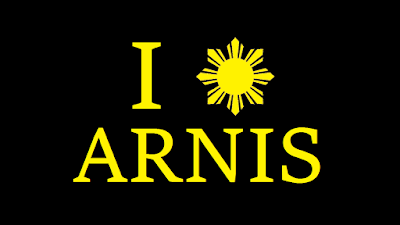The Inner Game Of Fencing: Excellence In Form, Technique, Strategy, and Spirit by Nick Evangelista
The Inner Game of Fencing – Excellence in Form, Technique, Strategy, and Spirit was written by Nick Evangelista, a fencing master and author who has written several books. I have three of them, the other two being Fighting With Sticks and The Art and Science of Fencing. Maestro Evangelista has been teaching fencing for more than 30 years.
The reasons I like this book and feel it would be a worthwhile addition to the shelf of any arnisador are twofold. First, most of the topics addressed in The Inner Game of Fencing are directly applicable to one’s practice of the fighting arts of the Philippines - for example, The Sport of Fencing and The Classical Fencing Movement, Offensive Simplicity, To Touch and Not Be Touched, or Fencing Versus Oriental Martial Arts. Secondly, I’ve never read any other book on a weapons-based art, system, or style that addresses the kinds of things written about by Mr. Evangelista, such as emotions, goals, strategy, self discipline, overthinking, excuses, discernment, etc.
The Inner Game of Fencing is 316 pages long, and is divided into 8 parts. The whole book is a cohesive collection of various essays I would imagine have been written or developed over many years based on the author’s experiences as a student, competitor and teacher. The text breaks down as follows:
Foreward
Preface
Acknowledgments
Author’s Notes
Introduction: Fencing and Thinking
Part 1 - Histories
Part 2 - The World
Part 3 - The Sword
Part 4 - The Body
Part 5 - The Mind
Part 6 - The Spirit
Part 7 - Fencing Lives: Mind Over Matter
Part 8 – Fencing
Afterword
Appendix
From the back cover:
In this groundbreaking book, veteran instructor and author Nick Evangelista shows that the mind of the fencer is the critical tool and that no matter how good your technical skills are, if you don’t know how to apply them effectively and efficiently, you will never grow beyond a simple poker. Evangelista explains how through self-discipline, continuous learning, and practice, you can take your fencing skills to a whole new level of performance.
I’ll share a few brief snippets from the text, with a few quotes for you to hear Evangelista’s voice, especially with regard to information applicable to the arnisador.
From Part 1 - Histories in “How I Learned to Think on the Fencing Strip”:
From Part 2 – The World in “Why I Fence”:
From Part 3 – The Sword in “Fencing Without Art or Science”:
Fencing becomes a living thing. It is art that gives us the ability to fight with control. It is science that unlocks the puzzle presented by one’s opponent.
From Part 5 – The Mind in “Patience in Fencing”
Learning
Learn by degrees, building comfortably on what you’ve previously assimilated.
Take each technique you are exposed to in stride.Attitude
When I began fencing, I never said, “I have to be doing this and this at such and such a time.” It never occurred to me to place time-limit expectations on my training. I just wanted to learn to fence period. And that’s how I’ve continued to handle my fencing over the years.
Living Example
Enjoy fencing for what it is. Appreciate all levels of your experience. And, above all, recognize the fact that you have plenty of time to learn. Then, patience will be a natural part of the entire process.
From Part 6 – The Spirit in “Glory”:
From Part 7 – Fencing Lives: Mind Over Matter in “The Lunge of Capo Ferro”:
Seventeenth-century fencing master Ridolfo Capo Ferro da Cagli...was one of destiny’s linchpins.
Capo Ferro was also a scholar and a man well-versed in the ways of he sword. Capo Ferro knew and expressed the advantages of regular practice, how to best deal with brutal adversaries, that the use of the single sword alone for defense could be effectively accomplished, and that the lunge was the future of sword fighting.
Upon Capo Ferro’s insistence, sword fighting began moving further and further from the circular form of it’s origins to a linear form. This allowed for greater forward acceleration and momentum on an attack, and improved point control; it also gave one the ability to quickly recover from failed attacks. Moreover, it began bringing the fencer on guard at an angle to his opponent...which lessened his target area.
From Part 8 – Fencing in “The Answer”:
My thoughts on this book
As arnisadors, the training and development of our minds (as our most important weapon) is equal in value to our physical training. We cannot have one without the other and truly be a Mandirigma. The Inner Game of Fencing – Excellence in Form, Technique, Strategy, and Spirit by Nick Evangelista is filled to the brim with wisdom, knowledge, and understanding that we can all profit from in our reading and study of resources useful to us as scholars and warriors. Just be sure to roll your sleeves up and dig deep!
Thanks for checking out the blog. God bless you, have a great day, and remember - whenever you train, train with all your heart!



Comments
Post a Comment